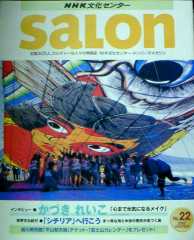| 日本の近代化に尽くした 「明治の父」 小栗上野介 Kozukenosuke Oguri, the father of the Meiji Era The man who Dedicated to the Modernization of Japan |
|---|
地元ではなじみの小栗上野介も全国的にはあまり知られていないが、小栗上野介の菩提寺である東善寺の住職として、長年研究して得た史実を通し、講座では人間・小栗上野介に迫っていきたいと思います。 Kozukenosuke Oguri, who is well-known locally here, is not so well known nationwide. However, as the chief priest of Tozenji Temple, the family temple of Oguri, I would like to approach Kozukenosuke Oguri as a human being in this course through the historical facts I have obtained through years of research.  NHK文化センター情報誌 「Salon」22号 NHK Cultural Center magazine "Salon" No.22 |
ボランティアの語源は自発的に参加する義勇兵のことだという。そうすると、小栗上野介に関するボランティアは彼が西軍によって殺された直後から権田村の人々によって行なわれていたことになります。村人は小栗道子夫人や母堂らを護って、護衛隊を作り、上州吾妻から秘境秋山郷へ抜けて新潟に至り、苦難の末会津へ。まもなく始まった会津戊辰戦争に、何人もの村人が会津軍と共に戦い、若者二人を戦死で失いながら夫人らを護り、静岡まで送り届けて帰郷している。まさに命がけのボランティアでした。 農民の側から言えば年貢を取上げる領主であって、主従関係にないのに、そこまでして守ったのは…、江戸から権田に移り住んだ二ヶ月の行動に命がけのボランティアの裏づけとなるものが見えてくるのです。 The origin of the word "volunteer" is said to refer to volunteer soldiers who participate voluntarily. Volunteer activities related to Kozukenosuke Oguri were conducted by the people of Gonda Village immediately after he was killed by the Western Army. The villagers formed a convoy to protect Mrs. Michiko Oguri, Oguri's mother, and some others, and after passing through the Agatsuma area in Jyoshu (today's Gunma Prefecture) to the unexplored region of Akiyamago to Niigata, they arrived in Aizu after much hardship. They lost two young men in the Aizu Boshin War, which began shortly after, and they protected Mrs. Michiko and others and took them to Shizuoka before returning to Gonda village. They were truly volunteers who risked their lives. From Gonda village farmers' point of view, Oguri was a lord who collected tribute, not a lord and retainer. Why, then, did they protect the Oguri family so much? Oguri's actions during the two months after he moved from Edo to Gonda reveal the reasons why the villagers were willing to risk their lives as volunteers. |
講座の前半では、遣米使節での見聞をもとに、日本の構造改革の原点ともいうべき横須賀造船所を建設した経過や、造船所が日本の近代化に果たした役割、また日本初の株式会社の創設が現在のPFI法案を先取りしたものであったことなど日本の近代化に果たした役割を探ります。司馬遼太郎が「明治の父」と、その功績をたたえた人物であることが確認できるでしょう。 講座の締めくくりに、実際に米軍横須賀基地に入って現存する造船所の姿を見てもらうと、「日本海海戦で完全な勝利を得られたのは小栗さんのお陰……」と東郷元帥が遺族に礼を言った心情も容易に理解できるでしょう。文字で得た歴史の知識は、現地を歩いて初めて自分の言葉で語れる血となり肉となる。できるだけゆかりの地に赴いて、小栗上野介の偉業と、その魅力を解きあかしていこうと思っています。 (NHK文化センター情報誌・「Salon」22号・2002平成14年冬号) The first half of the course introduces the major role Oguri played in Japan's modernization based on his observations during his mission to the United States. These include the process of building the Yokosuka Shipyard, which can be considered the starting point of Japan's structural reforms, the role the shipyard played in Japan's modernization, and the creation of Japan's first joint stock company, which was a precursor to the current PFI bill. It would confirm why Ryotaro Shiba praised Oguri as the "father of the Meiji era" for his achievements. To conclude the course, if you actually enter the U.S. Yokosuka Air Base to see the existing shipyard, you will easily understand the sentiments of General Heihachiro Togo who thanked Oguri's bereaved family, saying, "It is thanks to Oguri-san that we achieved a complete victory in the Battle of the Sea of Japan." The knowledge of history we gain through the written word becomes flesh and blood that we can speak of in our own words only when we walk on the ground. Therefore, I intend to visit as many of the places associated with Kozukenosuke Oguri as possible to uncover the great deeds of Oguri and his human charm. (NHK Culture Center magazine, "Salon," No. 22, the issue of Winter 2002 or Heisei 14) |
| 日本の近代化が アジアにもたらしたもの 新婚旅行で日本を訪問したブータンのジグミ・ケサル国王が、 2011年11月17日に日本の国会で行なった演説から What Japan's Modernization Has Brought to Asia Excerpts from a speech delivered by King Jigme Khesar of Bhutan to the Japanese Diet on November 17, 2011, during his honeymoon visit to Japan. |
ケサル国王は 「押し寄せる津波のニュースをなすすべもなく見つめていたことを覚えております。……いかなる国の国民も決してこのような苦難を経験すべきではありません。しかし仮にこのような不幸からより強く、より大きく立ち上がれる国があるとすれば、それは日本と日本国民であります。私はそう確信しています。」 と東日本大震災の見舞いを述べた後、 「私は若き父とその世代の者が何十年も前から、日本がアジアを近代化に導くのを誇らしく見ていたのを知っています。すなわち日本は当時開発途上地域であったアジアに自信と進むべき道の自覚をもたらし、以降日本のあとについて世界経済の最先端に躍り出た数々の国々に希望を与えてきました。」 「日本は過去にも、そして現代もリーダーであり続けます」 King Kesar expressed his condolences to the victims of the Great East Japan Earthquake as follows: "I remember staring helplessly at the news of the onrushing tsunami. ... No nation's people should ever have to experience such hardship. But if any nation can emerge stronger and greater from such misfortune, it is Japan and its people. I am convinced of that." He then continued: "I know that my young father and his generation proudly watched Japan lead Asia into modernity decades ago. Japan brought confidence and a sense of direction to what was then an underdeveloped region of Asia, and has since given hope to the many countries that have followed Japan to the forefront of the global economy." "Japan has been a leader in the past and continues to be a leader today." |
明治以降 アジアを忘れ無視していた日本 加藤秀俊 著作データベース ふたつの「バタビア新聞」 より 発行年月: 19740325 Japan has forgotten and ignored Asia since the Meiji era Hidetoshi Kato Database of Works From two "Batavia newspapers" Published: March 25, 1974 |
「先進国たる西洋に追いつけ、追いこせ、というスローガンですさまじい「近代化」への活動を開始した日本にとって、こんなふうに西洋と直結し、西洋からの情報を貪欲に吸収するのは当然のことであり、また賢明なことであった。結局のところ日本は西洋を横目で眺めながら、「近代化」に成功したのである。」 「しかし、…日本はいつのまにか、バタビア(ジャカルタの古名)だの香港だのといったアジアからの情報に鈍感になり、あるいはそれを無視するようになってしまった。日本人の世界地図のなかで、アジアは欠落したのだ。ときとして、アジアが意識のなかに入ってくることがあっても、それはもっぱら搾取の対象としてのアジアであって、そこから学ぼうとする姿勢はどちらかといえば希薄であったようにみえる。こんにちの東南アジアでの反日感情には、それぞれの国内での複雑な問題がからみあっており、それらの国に進出した日本企業を全面的に悪玉に見立てるのはやや酷だけれども、基本的に、アジアからの情報に冷淡、というのはわれわれ日本人の共通の傾向としてみとめなければなるまい。」 It was natural and sensible for Japan, which had begun its tremendous "modernization" activities with the slogan, "Catch up with and overtake the advanced West," to be directly connected to the West in this way and to absorb information from the West with voracious appetite. After all, Japan succeeded in "modernizing" while looking at the West sideways. However, ... Japan somehow became insensitive to, or ignored, information from Asia, such as Batavia (the ancient name for Jakarta) and Hong Kong. Asia has been absent from the world map of the Japanese people. Even when Asia has occasionally entered their consciousness, it has been as an object of exploitation, and their attitude toward learning from it seems to have been rather weak. Anti-Japanese sentiment in Southeast Asia today is complicated by domestic issues, and it would be a bit harsh to paint Japanese companies that have expanded into these countries as the villains. However, we must recognize the common tendency of Japanese people to be basically indifferent to information from Asia. |